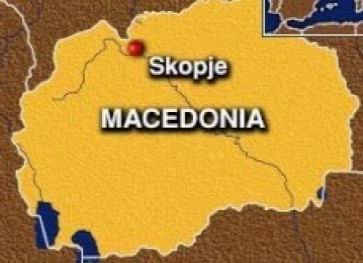PARLIAMENT URGES EU TO OPEN ACCESSION TALKS WITH MACEDONIA
In three separate reports, the European Parliament gave the thumbs up to progress made by Zagreb and Skopje towards EU accession, while Ankara's performance was deemed more modest.
EUOBSERVER / BRUSSELS – MEPs on Wednesday (10 February) urged member states to open accession talks with Macedonia, a call backed by the new enlargement commissioner, Stefan Fuele.
In three separate reports, the European Parliament gave the thumbs up to progress made by Zagreb and Skopje towards EU accession, while Ankara's performance was deemed more modest.
"I am glad to see there is strong consensus between the European Parliament and the EU commission that accession negotiations with the former Yugoslav republic of Macedonia should start," Mr Fuele said on his first day in office, during the plenary session in Strasbourg.
A decision on opening membership talks with Skopje was delayed last December following pressure by Greece. Athens has problems with the name of its neighbouring country, since Macedonia also corresponds to a historical Greek region.
The parliament urged member states to take a decision "at the summit in March 2010" and "expects negotiations to begin in the near future."
Mr Fuele said the decision was not only in the interest of the Balkan country, but also of "strategic EU interest," since it would "enhance the EU perspective for the wider region" – a message he would convey to member states and Skopje.
Slovenian Socialist MEP Zoran Thaler, the parliament's rapporteur for Macedonia, warned of the negative regional consequences of this stalemate, comparing the Western Balkans to a bicycle: fine as long as it's moving, "but if it stays still, everything falls over."
"Greece should be a generous mentor," he said, urging the member state to sit down to try and work out a solution to the name issue.
Meanwhile, Greek and Cypriot MEPs said that it was not politically acceptable for any Greek government to give the nod to opening negotiations before the name issue was solved. They also warned against playing to what they called the "nationalistic" tune of the government in Skopje. Macedonian authorities had irked Athens with its decisions to name highways and airports after Alexander the Great, king of the ancient Greek kingdom of Macedon.
The Spanish presidency, represented by EU affairs secretary Diego Lopez Garrido, gave a rather chilly evaluation of Macedonia's progress, reflecting the mood among member states. He was elusive on whether the EU would agree to open talks in March, talking of a "need for a timetable for accession negotiation and a solution to the name dispute."
"The EU institutions believe the future of the former Yugoslav republic of Macedonia is in the EU", he said, while also stressing a series of shortcomings regarding the fight against corruption, proper implementation of laws, gender inequality and minority rights.
Macedonian authorities have indicated they expect to start and complete the talks within five years.
Croatia on track, Turkey stalling
Croatia, the most advanced of the candidates, could still finish accession negotiations this year, as expected, if it keeps up with reforms and fully co-operates with the international war crime tribunal in the Hague, MEPs said.
They also called on the commission to open the remaining seven chapters, which the Spanish presidency deemed as "the most difficult," such as justice and home affairs, environment and competition.
"We are encouraged by recent developments in the fight against corruption and hope that investigations will lead to concrete results. I trust Croatia will be able to seize the moment and intensify efforts to solve outstanding issues," Mr Fuele said.
As for Turkey, progress is piecemeal, lawmakers and EU officials said. MEPs criticised Ankara for keeping airports and harbours closed to Cypriot vessels, for the fourth year in a row. This is something that could " seriously affect the process of negotiations," they warned.
Outstanding human rights issues and the banning of a political party for the Kurdish minority were also flagged up by MEPs. On the positive side, they noted the thaw in Turkish-Armenian relations and a law removing restrictions on broadcasting in Kurdish. Twelve out of the negotiation 35 chapters have so far been opened with Turkey since 2006 when accession talks started.






